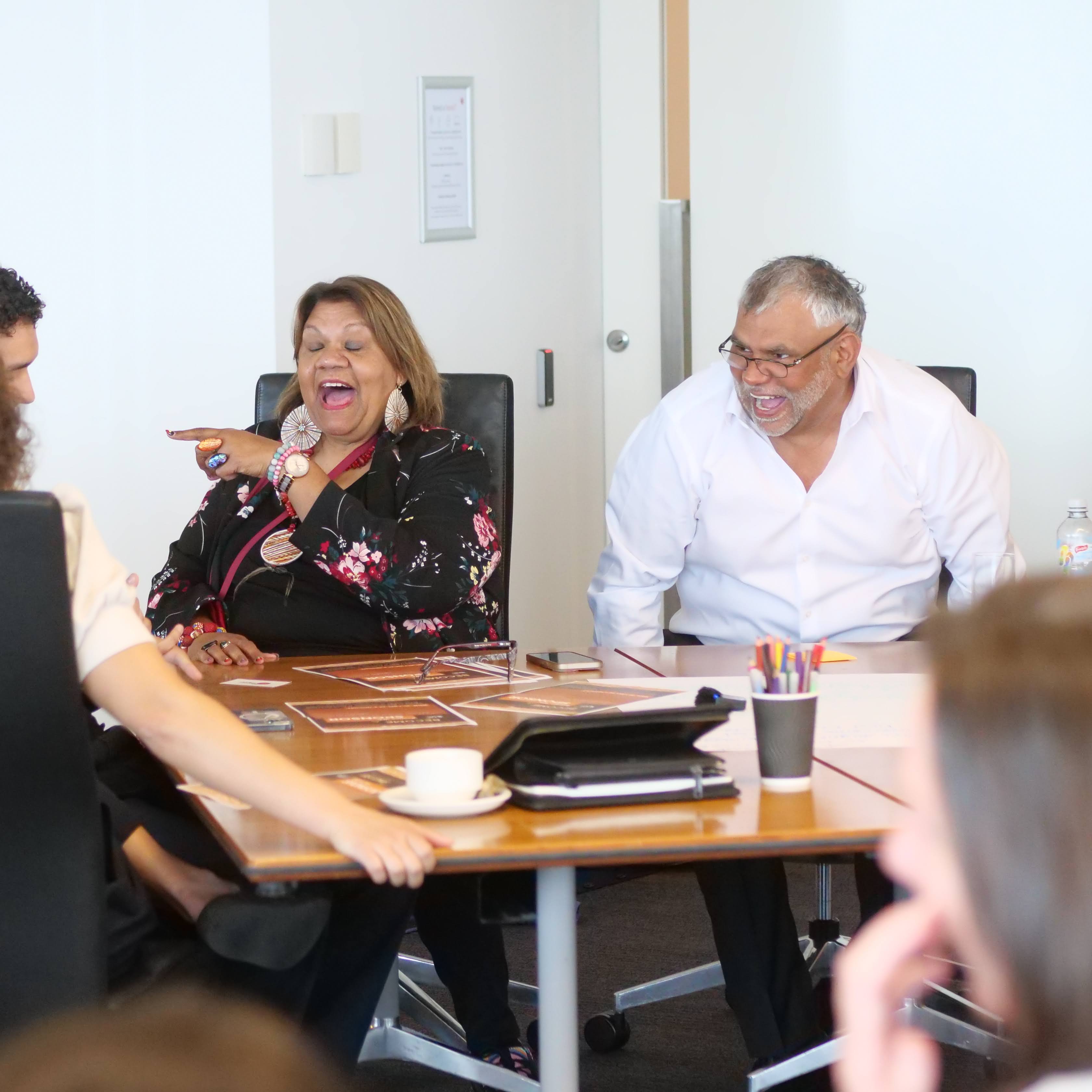The recent First Nations Ecosystem Workshop in Perth brought together a diverse range of Indigenous business people, emerging and established, to build a stronger and better prepared Indigenous business sector.
The event, organised and run by First Nations X with the support of National Australia Bank, gave businesspeople an opportunity to share, learn and educate, as well as facilitating gathering information about the challenges and opportunities Indigenous businesses's face.
First Nations X deputy chair Les Delaforce told National Indigenous Times: "Aboriginal-led businesses have significant potential to create generational change at the community."
"To do this at scale they need a more robust and connected startup ecosystem that recognises the needs of founders in all areas of country," he said.
"Understanding the ecosystem today provides a scaffold to strengthen around support gaps, and thereby support business growth, jobs and benefits for mob. It's a circular benefit as strong local businesses bring economic and social uplift to community and economic pathways for others."
Annie Ashworth - Indigenous Business and Community Banking WA, SA & NT National Australia Bank, told National Indigenous Times NAB has "been putting the building blocks in place to better support our growing First Nations business customer base, from both a commercial and cultural perspective".
"Through our First Nations banking team, we've been able to use this understanding and start backing everything from land councils to native food businesses, farmers to fashion designers," she said.
"Working with First Nations people, we want to strengthen financial resilience, increase business and employment opportunities, and remove the barriers that have traditionally made it hard for First Nations customers and businesses to access financial services.
"NAB has set a new target to more than double our lending to First Nations businesses and community organisations to at least $1 billion over the next three years."
Ms Ashworth said the growth of First Nations businesses plays "an important role in making Australia's economy more diverse and inclusive, and the benefits go straight back into the community".
Husband and wife team Scott and Tenay Stringer, who founded Marlee Resources in 2017, participated in the Workshop.
"Tenay and I both spent many years working in the mining industry, and during that time, we saw firsthand the opportunity on Country. There was a clear gap—few Indigenous-owned, Indigenous-run, and Indigenous-managed businesses that not only provided excellent service but also gave back to the community," Mr Stringer told National Indigenous Times.
"We recognised the potential to create meaningful employment, offer genuine opportunities for our people to gain trade certificates, complete degrees, and build real career pathways. When we decided to start our own business, we put everything on the line.
"We used the equity we had built in our property through years of saving and hard work, and we also took a significant personal risk by using our savings as a deposit to purchase our first piece of equipment. It was a large investment for us at the time, and we didn't have any external funding or backing. It was just us—no investors, no corporate partners, just our commitment to making it work."
Mr Stringer said they business took a calculated risk with that first piece of equipment.
"It wasn't a long-term hire, but we worked tirelessly to ensure we not only met but exceeded our client's expectations. By consistently providing exceptional service, we earned the opportunity to extend the hire and grow the business," he said.
He said the Workshop was "a great experience" with valuable lessons.
"We recently participated in a workshop with a diverse group of people from various industries. It was a great experience, but it underscored an important point: gaining access to funding is only part of the equation," Mr Stringer said.
"Without proper training and support—especially in business fundamentals like financial management and understanding balance sheets—funding alone won't lead to success. It's essential that we provide our people with the knowledge and skills to run businesses effectively and manage their finances wisely."

Marlee Resources began as a small, 100 per cent Indigenous family-owned business, which has grown to employ over 70 people, with more than 30 per cent of the workforce identifying as Indigenous.
"We've done it all ourselves, with the support of banks when necessary, but we've maintained full control. There are no silent investors, no hidden agendas—we built this from the ground up," Mr Stringer said.
"One of the most rewarding aspects of our journey has been the positive impact we've had on our Indigenous employees. Some of them had never worked full-time before, some in their 30s with no driver's license and significant fines. We've helped them clear their fines, obtain their licenses, and even purchase their own cars.
"Today, many of them are still with us, and we've seen how this has genuinely changed their lives. Some of them could leave tomorrow and start their own businesses—they now have the training, certifications, and skills to succeed anywhere.
"A number of our Indigenous leaders are now pursuing university degrees and are set to earn MBAs. This is just one example of how we're committed to not only providing jobs but also fostering long-term personal and professional growth for both our Indigenous and non-Indigenous staff."
The Workshop will provide vital input into the 2025 WA First Nations Start Ecosytem Mapping Report, increasing the understanding the First Nations business startup ecosystem, which is essential to better support future founders.
Key outcome themes were: Re-imagine First Nations startup funding; grow Thriving Ecosystems by raising visibility and support services; and Retain and Grow Aboriginal leadership talent by supporting across city, regional, and remote."



